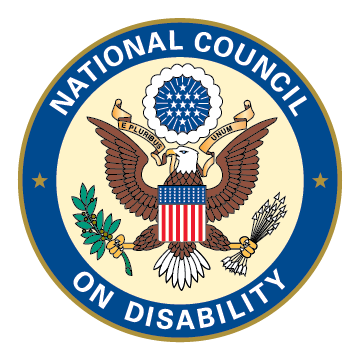CGS provides comments to National Council on Disability about heritable gene editing

On May 4, the Center for Genetics and Society contributed invited remarks about heritable gene editing at a comment session hosted by the National Council on Disability (NCD), the US federal agency that advises government and the private sector on disability policy. Some 17 speakers, including representatives of disability and patient advocacy organizations, scholars, medical researchers, and genetic counselors, weighed in for three minutes each on the topic “Germline editing, fetal medicine, and their impact on people with disabilities.”
The comment session was part of NCD’s work leading up to a report on the topic, the next in its Bioethics series, which currently consists of five reports published in 2019, including Genetic Testing and the Rush to Perfection.
NCD asked speakers to address these questions:
• What impacts do advances in the gene editing and fetal medicine technologies have for the future of the disability community?
• Which of these technologies do you think are completely out of bounds, should be used with parameters, or should be used regularly?
• If you indicated that any of the technologies should be used with parameters, what legal and ethical parameters should be put in place to make sure the use of the technology is equitable toward people with disabilities?
NCD defined “germline editing” as” technology that changes the DNA of every cell in a human so that the disability is removed entirely from the individual and also removed from their reproductive cells for future generations.”
Here are Marcy Darnovsky’s comments on behalf of CGS:
I’m Marcy Darnovsky, Executive Director at the Center for Genetics and Society, or CGS. Thank you for the chance to participate today.
CGS is not a disability rights organization per se. Our mission is ensuring a future in which human genetic and reproductive technologies serve social justice. We collaborate with advocates and scholars committed to disability rights, racial and reproductive justice, and human rights; we work to put these voices and perspectives at the center of debates about reproductive and genetic technologies.
For more than 20 years we’ve been particularly concerned about germline editing because of the high risk that it would exacerbate inequality and discrimination, revive pernicious ableist ideas about eugenics, and create a world of genetic haves and have-nots. Germline editing is the focus of the two points I’ll make today.
The first point is in answer to one of the prompts provided by NCD staff for this session: CGS believes that germline editing used in reproduction should remain firmly out of bounds. This view is shared by many scientists, scholars, advocates, and others. On the policy level, more than 70 countries categorically prohibit germline editing, as does a binding Council of Europe treaty. Unfortunately, this wide global policy agreement often goes unmentioned, especially by influential proponents of germline editing.
My second point is about a serious shortcoming in the ongoing high-profile and robustly funded conversations about germline editing that have been organized by the US and UK national science academies. In these conversations, preventing the births of people with disabilities is often used as an argument for moving forward with germline editing. There is little recognition of disability as distinct from illness, and disability rights voices are often lacking.
For example, in the most recent 200+ page National Academies report focused on germline editing, the words “disability” or “disabilities” appeared only 13 times, and 11 of those – 85% – were part of the phrase “disease and disability” or a close variant.
And just this past March, at the Third International Summit on Human Genome Editing, the three-day program included not a single voice representing disability rights or disability communities.
When perspectives and concerns from disability communities and other social justice communities are not put at the center of public and policy discussions of germline editing, the conversations will continue to be shaped by false assumptions, ableism, and eugenic legacies. Disability rights advocates have long been at the forefront of concerns about the harms of genetic selection and germline editing. The need for these voices is greater than ever.



